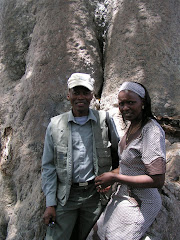Can members of the community identify signs of child sexual abuse?
Sexual exploitation and child sexual abuse are increasing rapidly in Botswana despite the existing legal mechanisms forbidding these practices and the stiff penalties that have been introduced to deter the culprits.
With the advent of HIV/AIDS pandemic children especially girls are more vulnerable to sexual abuse for several reasons which include material inducement offered to them by older men in exchange for sex. Some children succumb to sexual exploitation because of poverty and insecurity due to unreliable income in the household.
Incest as a form of child sexual abuse is more common than it has been documented mainly due to under-reporting of the offence. There are several explanations for the under- reporting which are among others, the secrecy surrounding the problem.
The perpetrators of child sexual abuse are usually close relatives of the victims and consequently there is a stigma associated with the commissioning of the offence, which normally makes the victims to shy away from the problem and choose to remain silent. It is been observed that associated with the stigma is the fear that reporting the matter might bring tensions and misunderstandings among relatives.
Case study 1: Incest
Mpho is a 15-year-old girl who is cared for by her uncle, who is a traditional doctor. She has five siblings: a twin brother who suffers from epilepsy (which the uncle is treating), a 13 year old sister, Marea, twin brothers who are ten years old and a small sister who is 6 years old. Her uncle has turned her into a surrogate wife (his own wife is not around) and Mpho has an ongoing sexual relationship with him. She lives with him in a newly built brick house while the other children live in a dilapidated reed hut across the compound. Mpho is responsible for seeing that her younger siblings are fed and clothed and she exerts control over them. She keeps Marea dressed in ragged, too-small childish dress. When they received a donation of some (girl's) clothes she gave one or two items to each of the children except Marea who got nothing and Mpho kept most for herself.
This case study is a tip of the ice berg... you know better...
The number of cases of child sexual abuse reported to the police is high and increasing at an alarming rate. Many cases of this nature go unreported because children as victims are powerless. This is so because the perpetrators are often breadwinners in the household and reporting them undermines the family income.
In most cases the abuse takes place in the family setting and therefore such cases are rarely reported due to coercion by the perpetrator, shame and fear on the part of the child.
The Children’s Act Section 11 finds any parent or guardian of a child or any person having custody of a child who neglects, mistreats or exploits a child guilty of an offence.
Neglect include the unreasonable failure to provide for adequate food, clothing, housing, health and care of the child and exposing a child to conditions or circumstances likely to cause him/her physical, mental or psychological distress or damage.
The Children’s Act also provides that any parent or guardian having custody of a child is guilty of an offence if s/he causes or conduces to the seduction, abduction or prostitution of the child.
Section 12 (1) of the Children's Act provides that any parent or guardian having the custody of a child who causes or conduces to the seduction, abduction or prostitution of the child or the commissioning by the child of an immoral act shall be guilty of an offence.
In criminal cases, where the child is a victim of child sexual abuse, the proceedings are held in camera to protect the identity of the child. Only authorised officials and the parents of the child are allowed inside the courtroom. Members of the press are also not allowed to report on the matter or take pictures of the victim. The proceedings can not be published disclosing the identity of the child as stipulated in Section 172 of the Criminal Procedure and Evidence Act.
Section 171 of the Botswana Penal Code provides that no cases of incest are prosecuted without the written consent from the Attorney General's Chambers. It is believed that cases of incest are controversial and normally bring conflicts between members of the same family. So it has been found necessary to establish first whether there is sufficient evidence to prosecute.
Subscribe to:
Post Comments (Atom)











No comments:
Post a Comment